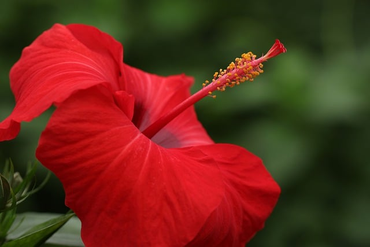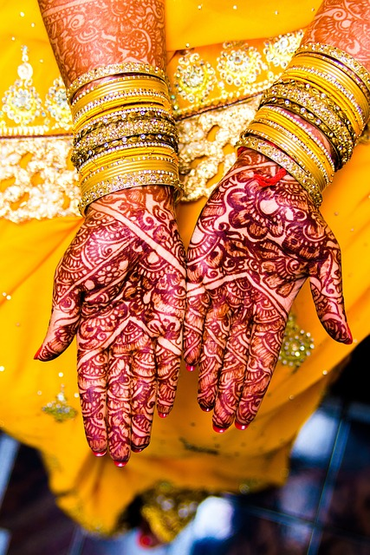

When our hair is fresh, we feel good. Hair is often regarded as a symbol of beauty and well-being and has held a significant place in human culture and history. In the quest for silky hair and healthy locks, countless individuals have sought solace in Ayurveda, an age-old system of holistic healing with roots dating back millennia. In this article, we will d uncover the secrets of the ultimate Ayurvedic hair care routine.
Originating in India, Ayurveda places strong emphasis on harnessing the power of natural remedies and adopting a harmonious lifestyle to attain overall wellness, with particular regard to attain holistic hair health too.
In this article, we will bring you on a journey to uncover the secrets of the ultimate Ayurvedic hair care routine! Our focus will be on the utilization of natural ingredients and practices, all geared towards helping you achieve and sustain remarkably healthy hair.
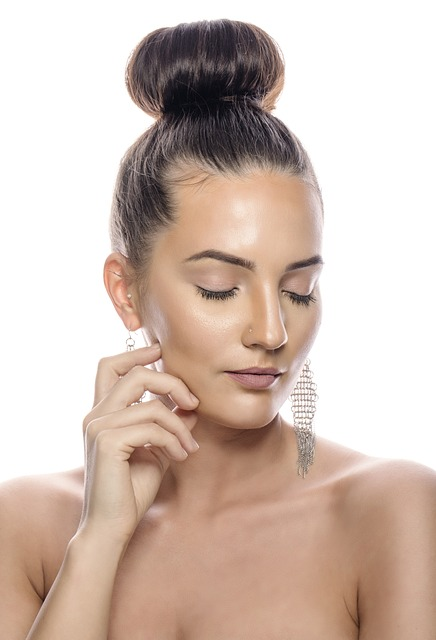
Before diving into the intricacies of an Ayurvedic hair care routine, it's imperative to grasp the fundamental principles of Ayurvedic therapies that underpin hair care practices. These principles form the backbone of Ayurvedic wisdom and offer profound insights into nurturing and maintaining healthy hair.
Ayurveda recognizes three primary doshas – Vata, Pitta, and Kapha – each representing a unique combination of the five elements: earth, water, fire, air, and ether.
Your hair type and overall hair health are intricately linked to your dominant dosha. Ayurvedic hair care, therefore, revolves around the notion of harmonizing these doshas to stimulate and sustain healthy hair growth.
Vata Dosha: Vata-dominant individuals typically have dry, brittle hair that is prone to frizz and split ends. Ayurvedic hair care for Vata dosha individuals focuses on hydrating and nourishing the hair, as well as calming the mind to reduce stress-induced hair problems.
Pitta Dosha: Those with a dominant Pitta dosha tend to have fine hair that is susceptible to premature graying and thinning. Ayurvedic care for Pitta hair involves cooling the scalp, managing inflammation, and incorporating soothing practices to counterbalance Pitta's fiery nature.
Kapha Dosha: Kapha-dominant individuals often have thick, oily hair that may be prone to dandruff and sluggish growth. Ayurvedic hair care for Kapha types aims to stimulate circulation, cleanse excess oil, and invigorate the scalp to encourage vibrant, healthy hair.
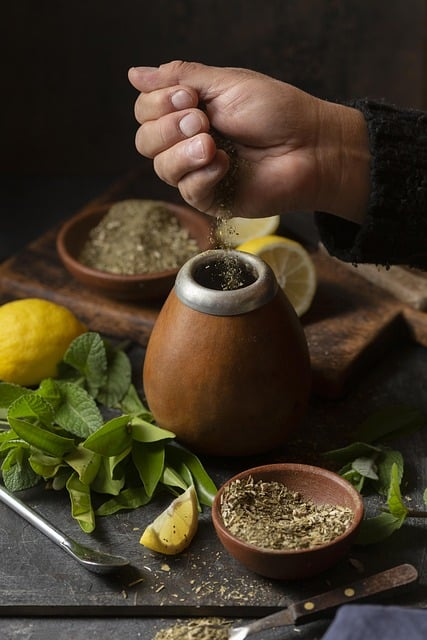
In the realm of Ayurveda, the foundation of healthy hair care routine extends from within. What you consume directly influences the vitality of your hair.
Ayurvedic dietary guidelines emphasize the following:
Balanced Diet: The inclusion of a well-rounded diet, tailored to your dosha type, ensures that your hair follicles receive essential nutrients. For instance, Vata types may require foods that are nourishing and hydrating, while Pitta types might benefit from cooling and soothing foods. Kapha types may need foods that promote circulation and reduce excess oil.
Hydration: Consuming ample water and hydrating foods helps maintain the moisture balance in your hair, preventing dryness and brittleness.
Protein-Rich Foods: Foods like lentils, beans, lean meats, and dairy products provide the necessary protein for hair growth and strength.
Healthy Fats: Incorporating sources of healthy fats, such as ghee and coconut oil, aids in nourishing hair from within.
According to Ayurveda, if you have a itchy scalp this is not good as a healthy scalp serves as the cornerstone of thriving hair growth.
A well-maintained scalp creates an ideal environment for hair follicles to flourish, while an imbalanced one can give rise to various hair-related issues.
Regular Cleansing: Ayurveda recommends regular cleansing of the scalp to remove excess oil, dirt, and impurities. Depending on your dosha, you can choose appropriate natural cleansers like shikakai, reetha (soapnuts), or amla.
Balancing the Scalp: Maintaining the balance of your dominant dosha within the scalp is essential. For example, Vata types may need oil massages to prevent excessive dryness, while Kapha types should focus on scalp invigoration to combat oiliness.
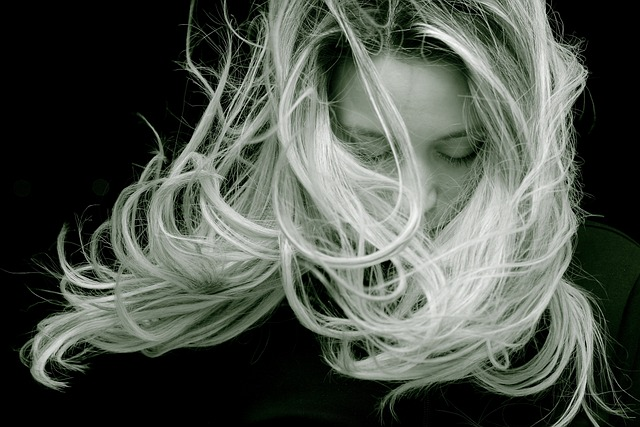
At the heart of Ayurvedic hair care lie herbal remedies, oils, and natural ingredients known for their remarkable properties in addressing hair concerns. These natural elements are believed to possess the inherent capacity to rejuvenate and fortify the hair.
Amla (Indian Gooseberry): Rich in vitamin C and antioxidants, amla serves as a potent hair tonic, promoting growth, reducing hair fall, and enhancing overall hair health.
Brahmi: Brahmi strengthens hair roots, prevents hair loss, and has the added benefit of calming the mind and reducing stress, a common contributor to hair issues.
Bhringraj: Often used to stimulate hair growth, reduce dandruff, and prevent premature graying, bhringraj is a revered herb in Ayurvedic hair care.
Ashwagandha: Known for its stress-reducing properties, ashwagandha helps combat stress-induced hair problems by restoring hormonal balance.
Incorporating these Ayurvedic principles into your hair care routine tailored to your dosha type can provide a holistic approach to achieving and maintaining healthy, vibrant hair. By embracing these natural practices and remedies as hair products, you embark on a journey of nurturing your hair from both within and without, ensuring long-lasting hair health and radiance.

Now that we've established a foundational understanding of Ayurvedic principles for optimal hair growth and care, let's embark on the journey of crafting the ultimate Ayurvedic hair care routine – a comprehensive guide to achieving and maintaining exceptionally healthy hair.
Determine Your Dosha Type: Before you dive into any Ayurvedic hair care regimen, it's essential to identify your predominant dosha – Vata, Pitta, or Kapha. This knowledge serves as the compass guiding your choices in terms of diet, hair oils, and other practices. You can consult with an Ayurvedic practitioner for a personalized assessment or opt for online quizzes designed to reveal your dosha type.
Nourish Your Body: Healthy hair originates from a well-nourished body. Ayurveda advocates for a healthy diet tailored to your dosha type, but several general dietary principles apply:
Variety of Fresh Fruits and Vegetables: Including an array of fresh fruits and vegetables in your diet provides essential vitamins and minerals that fortify hair follicles.
Protein-Rich Foods: Incorporate protein sources such as lentils, beans, lean meats, and dairy to support hair growth and strength.
Healthy Fats: Enrich your diet with healthy fats like ghee and coconut oil, which nourish hair from within.
Hydration: Maintain adequate hydration by drinking plenty of water throughout the day, as well as consuming hydrating foods.
Herbal Supplements: Ayurvedic herbs and supplements can significantly enhance hair health. Some commonly used herbs include:
Amla (Indian Gooseberry): This fruit is rich in vitamin C and antioxidants, making it a potent hair tonic that stimulates hair growth and reduces hair fall.
Brahmi: Renowned for strengthening hair roots and preventing hair loss, Brahmi also has the added benefit of calming the mind and reducing stress, a common contributor to hair problems.
Bhringraj: Often employed to promote hair growth, reduce dandruff, and prevent premature graying, Bhringraj holds a revered place in Ayurvedic hair care.
Ashwagandha: With its stress-reducing properties, Ashwagandha can help combat stress-induced hair loss. Stress can disrupt hormonal balance, a key factor in hair issues.
Before incorporating these supplements, it's advisable to consult an Ayurvedic practitioner or herbalist to ensure they align with your dosha and individual needs.
Oil Your Hair Regularly: One of the most iconic Ayurvedic hair care practices is oiling. Different oils are recommended for different dosha types:
Vata: Sesame oil or almond oil.
Pitta: Coconut oil or sunflower oil.
Kapha: Mustard oil or castor oil.
Warm the chosen oil slightly and gently massage it into your scalp and hair roots. Leave it on for at least an hour, or for maximum benefits, overnight, before washing it out. Regular oiling enhances blood circulation to the scalp, strengthens hair follicles, and prevents hair fall.
Choose Natural Shampoos and Conditioners: Traditional Ayurvedic shampoos and conditioners are crafted from natural ingredients such as shikakai, reetha (soapnuts), and amla. These components cleanse the hair without stripping it of its natural oils, offering a gentle, nourishing experience. Seek out products free of harsh chemicals and sulfates for optimal results.
Herbal Hair Masks: Herbal hair masks provide deep nourishment and target specific hair concerns. Here are some Ayurvedic hair mask recipes tailored to different hair types:
For Dry Hair: Blend aloe vera gel with a few drops of coconut oil and apply it to your hair. Leave it on for 30 minutes before washing.
For Oily Hair: Create a paste with multani mitti (Fuller's Earth) and water, applying it to your scalp and hair before rinsing thoroughly.
For Dandruff: Mix neem powder with yogurt and apply it to your scalp. Leave it on for 30 minutes before washing.
For Hair Growth: Combine fenugreek powder with coconut milk and apply it to your scalp. Leave it on for an hour before rinsing.
Scalp Massage: Regular scalp massages are a fundamental aspect of Ayurvedic hair care. Massaging the scalp for 5-10 minutes daily, either with your fingertips or a wooden comb, stimulates blood flow to the hair follicles, fortifies the roots, and encourages healthy hair growth.
Practice Yoga and Meditation: Stress is a known disruptor of hair health, leading to issues like hair fall and premature graying. In alignment with Ayurvedic principles, yoga and meditation are indispensable tools for reducing stress, balancing hormones, and nurturing overall well-being, all of which significantly benefit your hair.
Maintain a Healthy Lifestyle: In conjunction with a balanced diet and stress management, Ayurvedic principles underscore the significance of a healthy lifestyle. Adequate sleep, regular exercise, and a daily routine tailored to your dosha type all contribute to the well-being of your hair.
Be Patient and Consistent: Ayurvedic hair care is a holistic, long-term approach to hair health. While results may not be instantaneous, patience and consistency are key. Monitor your hair's response to various practices and make adjustments as needed.
In embracing the ultimate Ayurvedic hair care routine, you not only nurture your hair from the outside but also provide it with the inner nourishment it craves. Nature's wisdom, as channeled through Ayurveda, offers a holistic path to achieving and maintaining extraordinarily healthy and vibrant hair.










